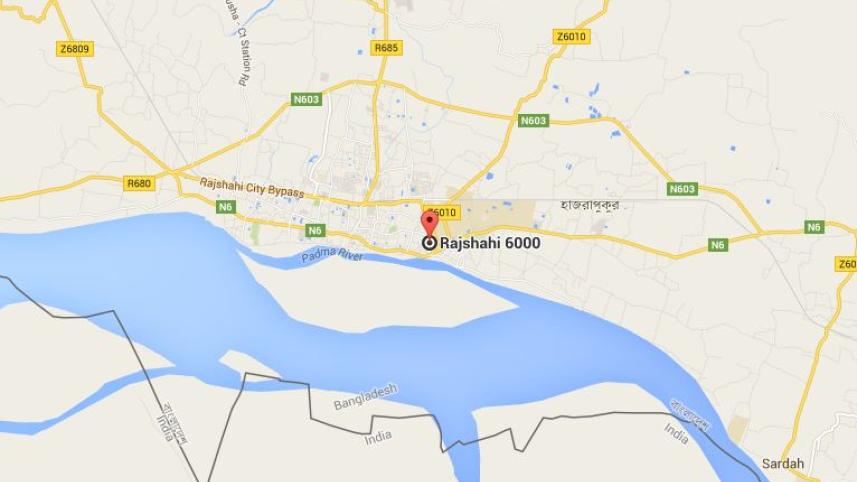Staying home not an option

Inadequate relief distribution is compelling farm labourers in Rajshahi, mostly from indigenous communities, to travel outside their villages and unions to look for agricultural work.
As a result, they are not able to follow the health advisory to stay home and maintain social distance to stem the spread of coronavirus.
Through local representatives, the government started to provide food support from March 27 to low-income groups outside social safety nets to help them pull through the virus-induced shutdown.
But many poor families among the farm labourers in Rajshahi are yet to receive any relief.
Talking over phone on April 3, Ashonto Bakla, a representative of the indigenous Orao community of Chhatinipara under Rishikul union of Godagari upazila, said most members of the 150 Orao families in his community went to work at potato fields in Tanore, Paba and Mohonpur upazilas.
While many of them returned towards the beginning of April, some 40 members of the community, mostly women, are still working at distant places, he said.
Ashonto said they received relief, but for only three families in the village.
"Every day, we are lobbying for more relief daily and returning home barehanded," he added.
Rishikul Union Parishad chairman Shahidul Islam said till April 3, his union received 5.04 tonnes of rice for 504 families, while at least 4,000 families in the union require relief.
"I'm becoming crazy receiving calls [for relief]. I cannot bear it when I see their miseries. I'm donating from my own savings, which is not enough," Shahidul wailed.
Meanwhile, many farm labourers, who are currently working outside their unions, have not even heard about relief distribution.
Nazir Orao and his wife Suchorita from the Orao community of Godagari upazila's Kakonhat village are among them.
This correspondent met the couple on March 29 while they, along with 12 other labourers, were loading a mini truck with sheaves of wheat near a field in Paba upazila's Mahandakhali village.
The couple and their seven-year-old son had left their village on March 28 and travelled 15 kilometres to come to Paba upazila for agricultural work.
"We'll stay here for two weeks harvesting, threshing and preparing wheat for sales," Nazir said.
He and Suchorita receive Tk 350 each per day at the end of their work shift, in addition to daily meals and shelter provided by their employer.
"After this job, we'll have enough to survive till the beginning of Boro rice harvest in late April," said Suchorita.
When asked about coronavirus infection risk, Nazir said, "We have no problem with coronavirus, we wear masks and keep distance from each other in the field."
Some farm labourers, harvesting potatoes in Talondo and Pachondor villages in Rajshahi's Tanore upazila, said they came from Porsha and Sapahar upazilas of Naogaon district.
The workers said they could not find agricultural work in their home villages as the Boro rice fields there are only getting irrigated now.
Farm jobs are also becoming scarce, as potato and wheat harvest season is coming to an end. In addition, people who lost their regular income from other trades are competing for agricultural work.
Hunger drove blacksmith Kalidas Karmakar of Krishnapur village of Tanore upazila to work at a potato field for two days to buy rice. Even then, he had to borrow Tk 500 from relatives.
"I am struggling to feed my eight-member family as my shop, that fetched Tk 600 daily, has been closed for about a week," he said.
"All my savings is gone. I am taking only two meals a day instead of three. But I have to feed the kids thrice," he lamented.
"If I don't get relief soon, I will have to find a farm job again," he said.
Regarding the risk of infection, he said "Maintaining physical distance while working with other labourers is impossible. Still, I have to endure the work to survive."
Kalidash said he begged the Pachondor UP chairman for relief and was denied.
Pachondor UP chairman Abdul Matin told The Daily Star that out of 6,000 ultra-poor families in his union, 4,000 are covered by safety net programmes.
He said till April 4 he received six tonnes of rice for 600 families out of the 2000 ultra-poor, not covered by the social safety net.
"I'm in an awkward situation, who shall I leave out and who shall I feed. Every one of them need relief," Matin said.
He also said because of the pandemic they had to force hundreds of itinerant workers to go home when they came to Pochondor union to find jobs in potato fields.
Paddy farmer Mostafa Kamal, too, claimed that the demand for farm jobs has gone up.
However, he fears that there might be a labour crisis during the Boro rice harvest season in the district by the end of this month, if the coronavirus situation worsens and labour movement becomes further restricted.
In a press conference, the Deputy Commissioner of Rajshahi informed that they identified at least one lakh people including farm labourers who require relief.
Till April 17, the district administration distributed 1,671 tonnes of rice and Tk 62.49 lakh in cash among 1,86,418 people in the city and nine upazila.

 For all latest news, follow The Daily Star's Google News channel.
For all latest news, follow The Daily Star's Google News channel.